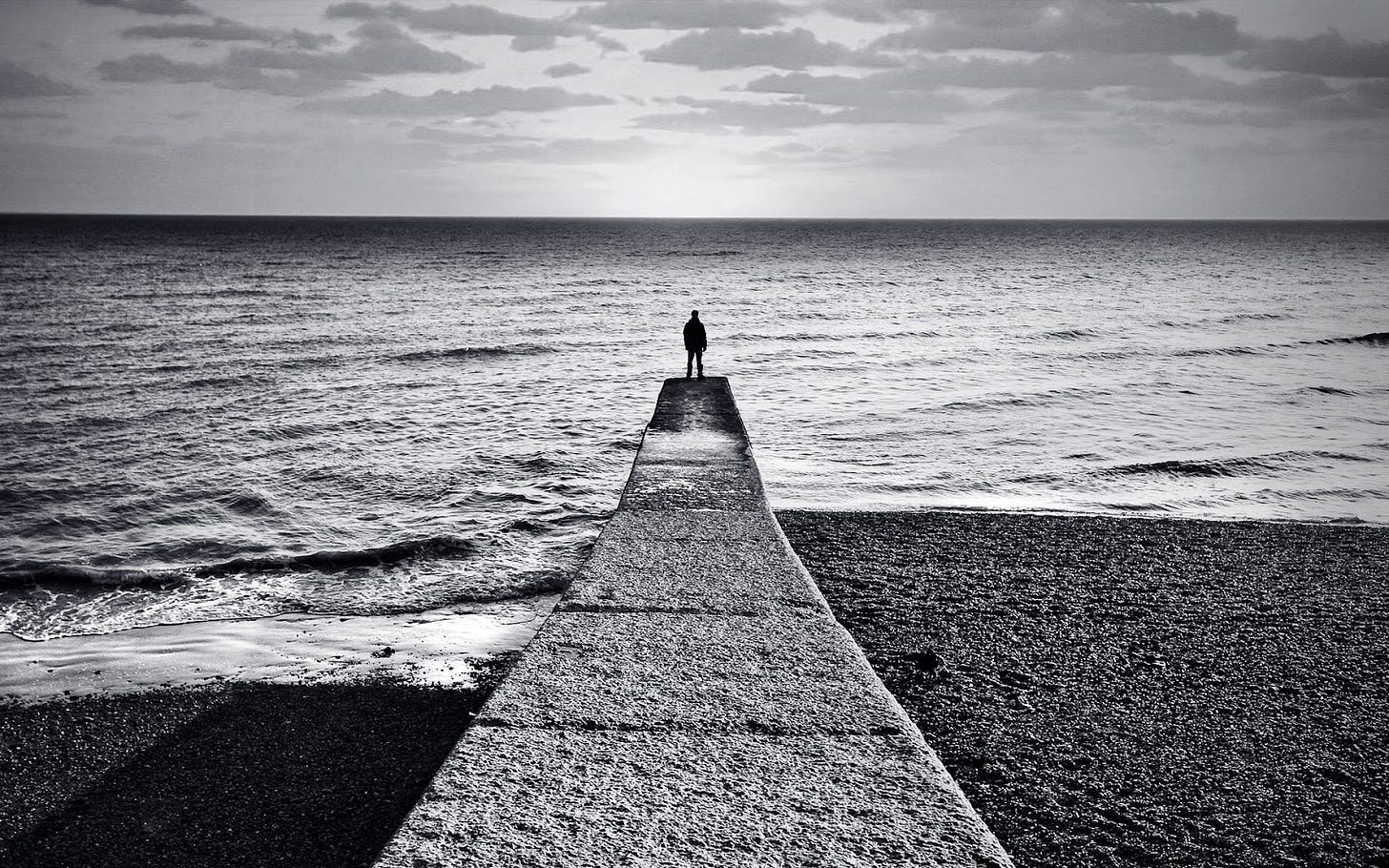On Solitude
The radical act of "engaged disengagement".
There is a place that exists which, however chaotic the world or tempestuous the mind, provides a refuge from these roily elements.
This place is one of juxtapositions; of our Self in relation to others, of our experience of the outer world of nature in relation to the landscape of our inner world, and of our inward reflection against our external projections.
This place is called solitude.
Solitude is a sanctuary, a shelter within our Self to seek temporary seclusion from ceaseless schedules. In the sanctuary of solitude, we can step out of time, transiently sequestered from temporal demands. Drifting in the sense of space outside of time.
Solitude is a retreat, a place to replenish our reserves from relentless pressures. In the retreat of solitude, we can step into our Self, restored by the relief of stillness. Floating in the sounds of silence.
Solitude is a preserve, a space to shield our perceptions from the dulling mundanity of routine. In the preservation of solitude, we can step into our surroundings, etching into consciousness the details of our scenes. Buoyant on the dissolution of separateness.
In solitude lies reflectiveness, that long-forgotten act of reaching inward on our Self, of conscious disengagement from incessant “doing”, to purposeful engagement with the power of reflection. Somewhere in our culture, introversion became cool. Introspection didn't. Introversion is now a label. But introspection is a practice.
Solitude is a space for our somatic senses, a place to draw down the mind to inhabit the body, dissolving duality between these Cartesian spheres. Solitude is an interoceptive expanse, a terrain of rich interiority. Integrate your interoception and introspection together, and open up to a world of connection; the feel of the bench underneath, the sway of the leaves, the passing vista from the train window.
This experience that is available anywhere, at any time. Solitude is not, nor does it require, isolation, aloneness, or alienation; the experience of these states are all defined by their relations to others. Rather, solitude may be defined as a state of “engaged disengagement” from others, transient and purposeful, and in disengaging from others may engage either with the Self or the surroundings:
“The solitary consciousness may be focused on itself, but it may also be focused on the shoreline, the sounds of the night forest, or the shaping clay beneath the fingers.”
The experiential nature of solitude holds a wide spectrum of required doses; the balance of solitude to socialising may differ from one person to the next, from you to me. But whatever the required amount, a life without solitude is a life lacking the restorative power of reflection, the sanctuary of stillness, and rejuvenation of perception for our environs. A life without solitude is a life unexamined. And only in our temporary disengagement from others can we reinvigorate the value of our social world.
When Koch asked:
“What compound of space and self and silence and time is it that forms experiences so profound yet so humble, so reflectively rich yet so obviously saturated into nature, so exhilarating yet so peaceful?”
The answer lay in a celebration of solitude, at once the most beautiful and necessary state to, echoing Goethe, return into our Self and find a world.



Stunning.. 🙏🏻
Aaaand exhale!!! Loved this, thank you 🙏